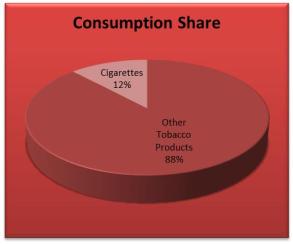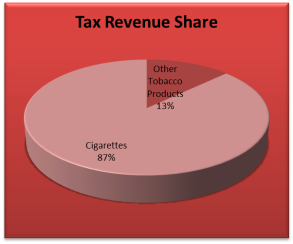Smoking has become a difficult pastime in the country. You ask why? The sky-rocketing prices – thanks to over the top excise duties, increasing publicity about related health risks, restrictions on marketing strategies of tobacco companies and now the proposed ban on sale of loose cigarettes- All of these have made dhumrpaan a difficult luxury to afford.
Wondering, why am I bothered about the ban, because the government’s new planned anti-tobacco legislation sent the cigarette stocks crashing down. Tobacco giants like ITC and Godfrey Philips took hits of over 5% this week. Earlier this week, the Union Health Minister JP Nadda informed that the government has accepted the recommendation of an expert panel to ban the sale of loose cigarettes and has moved a Cabinet note to amend the anti-tobacco law.
Before looking at the significance of tobacco industry in the economy, first let’s revisit how we came to discover about this irresistible smokey delight (doubt me? Ask your next door hipster)
India’s tryst with tobacco –
Tobacco cultivation has a history of about 8,000 years. In India, however, the Portuguese are credited for introducing us to the death sticks in 1600. Although, some locally grown strains were already there, the refined ones were brought in from Brazil. Since then, there has been no looking back, with the British bringing in the much popular modern version with them.
Back to Economy –
India is the second largest producer of tobacco and also the second largest consumer of unmanufactured tobacco. China and the USA are ranked first and third respectively, in terms of cultivation. The industry contributes significantly to our excise revenue, export revenue and employment. Although cigarettes account for only 12% of tobacco consumed in India (unlike 80% in other countries), they contribute 87% of revenue to the exchequer from the tobacco industry (see below). The Beedis : Cigarette consumption ratio is an astonishing 10: 1, with per capita consumption of the much feared cum loved product standing at 117 sticks per adult which is approximately 1/9th of the world average. Indian tobacco is exported to around 100 countries. The Tobacco industry provides direct and indirect employment to 38 million people in India, primarily in the agriculture sector and contributes around Rs 28,000 crores to the Government exchequer apart from generating valuable foreign exchange earnings of more than Rs 6,000 crores.
One take away- Cigarettes are taxed over 47 times as compared to other tobacco products
The Proposals made –
The suggestions of the experts cover everything from removing designated areas for smoking to cancelling the licence of manufacturers, importers, suppliers, distributers or sellers for violating provisions relating to sale of cigarettes to minors, ban on advertisement and health warnings on cigarette packets. All agreed and accepted, but what’s with preventing the cos from indulging in CSR activities? On one hand it is expected the companies spend on social welfare, on the other it is desired of them not to publicise their brand.
Anyways, the recommendations are the following-
The companies in fray –
The tobacco companies already facing the heat in domestic markets due to much annoyance and awareness among the people, are now on the verge of getting thrown into fire. First the astronomical increase in excise and now the ban on sale of loose sticks, will make their leadership re-think their strategies and markets once again. Limiting their scope for advertisements and subjecting the cigarette packets to heart-wrenching images, will see the volume go down further.
The companies got a one off shock on November 25 as can be seen below –
The Government needs to decide whether or not it wants the nation to smoke. Hypocrisy cannot be the way out. In the end, the shareholders in these companies are entities with an incentive to make a cut on their massive investments. The Government can’t keep both the laddoos – by making handsome revenue off the companies in the garb of a social benefactor whip lashing at every nook and turn. Every individual is a responsible adult, it’s time to leave the tobacco market to the powers of supply and demand.
And if you are wondering if I smoke, then no, not yet!






































